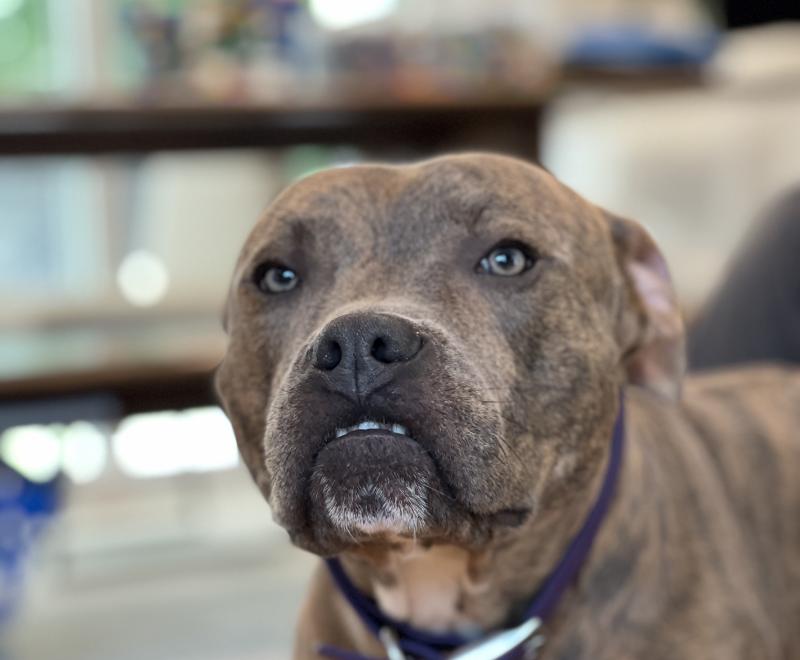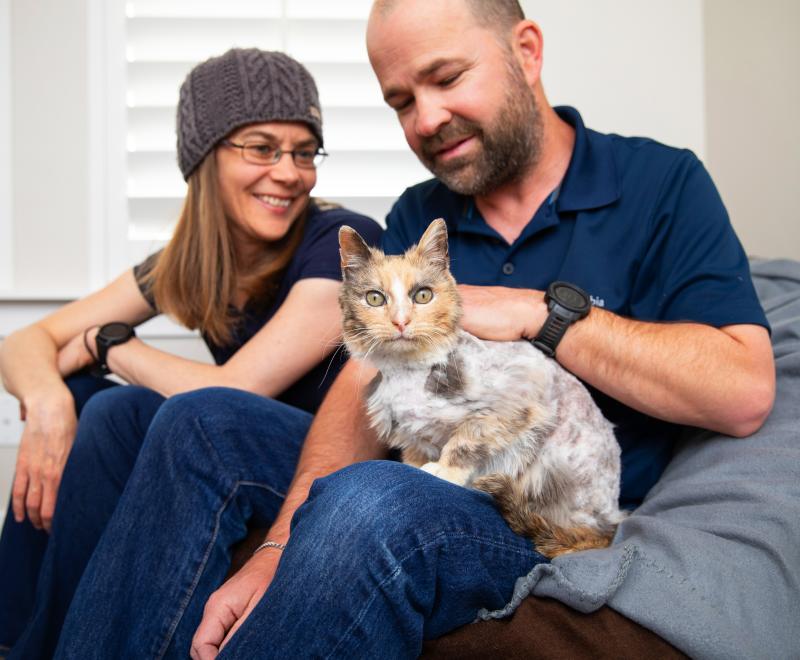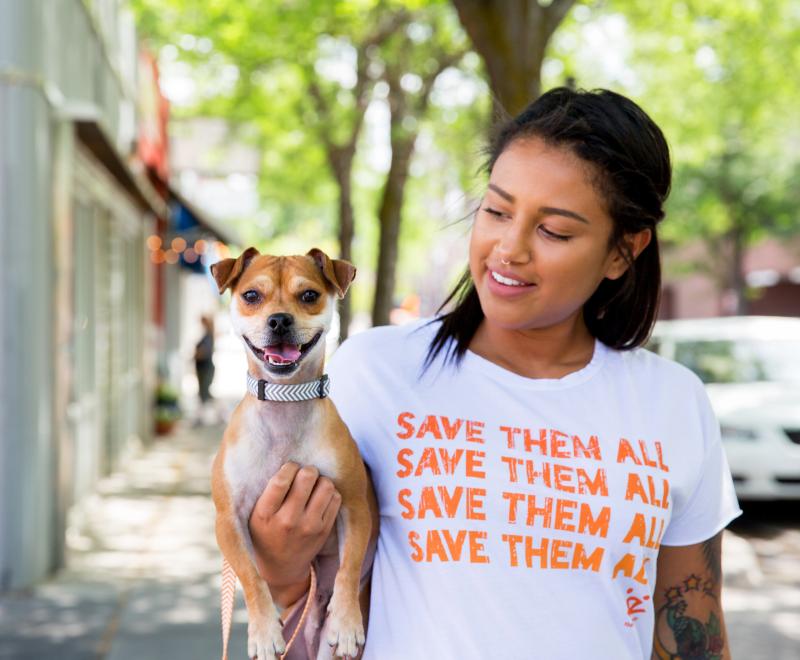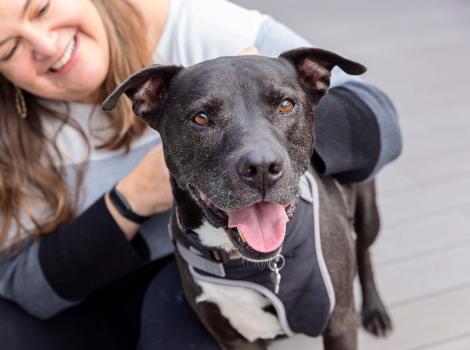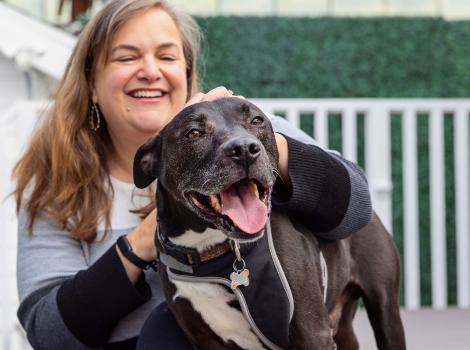Pit bull terriers living the good life in Miami
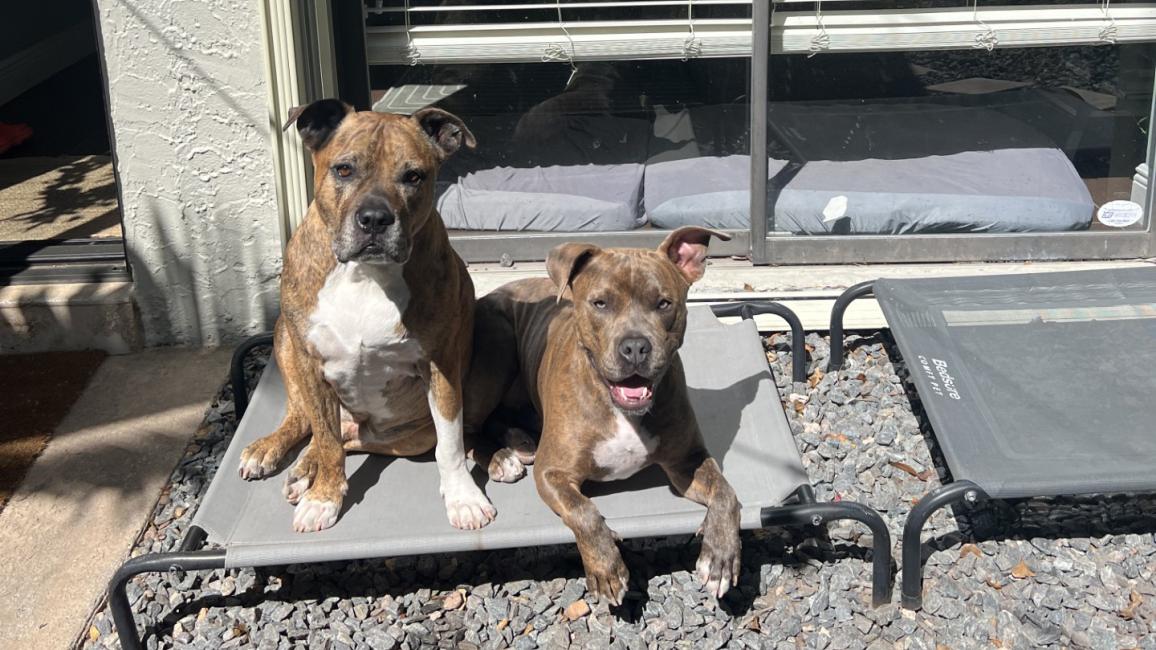
Every morning, a dog named Logan shares a post-breakfast banana with look-alike, reddish-brown pal Doug, who’s six years his senior. With the banana dutifully inhaled within seconds, the two pit bull terriers are off for their usual morning walk through their neighborhood in Kendall, Florida.
For Logan, Doug, and many other residents of Miami-Dade County who happen to be pit bulls, it’s the start of another peaceful morning filled with love, outdoor fun, good food, long naps, and all the other things that dogs get to do. It wasn’t always this way.
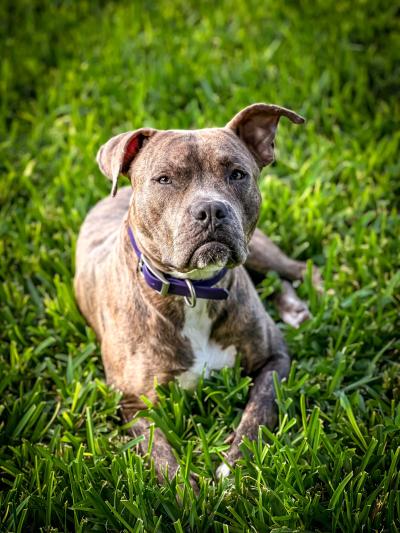
No more Miami pit bull ban
From 1990 up until the end of last year, dogs who looked like Logan and Doug were banned from Miami-Dade County, the only one of 67 Florida counties with such a restriction. Then last October, the ban was lifted, and ever since, more dogs like Logan and Doug are getting second chances at happy lives.
Best Friends played a significant role in building support for legislation and getting it sponsored in the Florida Legislature by Miami-Dade legislators Sen. Alexis Calatayud and Rep. Demi Busatta Cabrera. Working to repeal breed bans nationwide is part of our ongoing work to save the lives of more dogs and cats to help shelters around the country reach no-kill in 2025.
Monica Vega says Logan and Doug have been inseparable buddies ever since Logan joined her family. She, like many people in the area who love pit-bull-terrier-type dogs, was overjoyed when the ban was lifted. “Now both of our dogs and so many other dogs like them can live happy lives, just like any other dog in the county.”
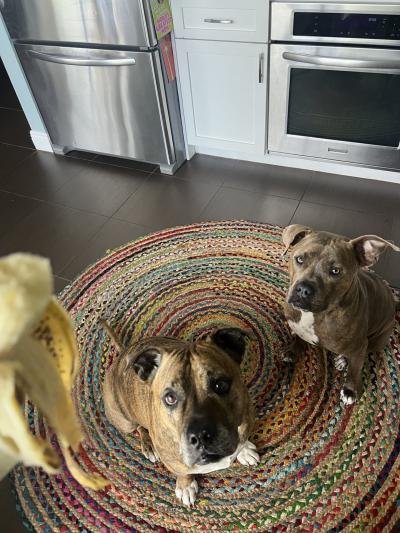
How Logan landed a happy home
Logan arrived at Miami-Dade County Animal Services (MDAS) after apparently being hit by a car. He had a laundry list of injuries, including a broken leg. Yolanda Berkowitz, longtime Miami-area animal advocate and president of the Friends of Miami Animals Foundation, heard about Logan’s plight through MDAS alerts and provided for the medical care and orthopedic surgery that saved his limb.
“Logan is a very special boy, and I had a friend who is a certified trainer meet him. And she agreed to do a board-and-train with him, so I could get to know him better,” Yolanda says. “He was a perfect boy from the first day I met him, and he was a superstar in his training and in foster (care).”
When Monica and her partner, Stefan, showed interest in adopting Logan, the fact that they already had Doug was a plus, says Yolanda. “It was a great thing for Logan because he’s very social and loves people and animals.”
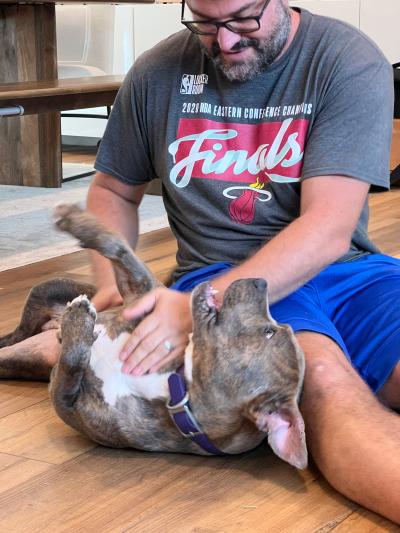
‘Brothers’ enjoying life together
“The day we brought Logan home, he and Doug were best friends,” says Monica. “It was instant, and they went straight to playing. I expected more hesitation on Doug’s end, so we were very pleasantly surprised.”
On weekday mornings, Monica wakes them up around 6:30, and the moment they walk downstairs, it’s all about food — even before going outside and doing their business, says Monica. “Nothing happens until they’ve eaten and had their banana.”
[Ending restrictions based on dog breed]
Their banana-sharing morning ritual originated with Stefan, who gave Doug a bite of banana one morning, and it just became their little routine. “Now Doug absolutely demands a banana after breakfast,” she says. “I don’t really think Logan cares that much about the banana. He just doesn’t want to be left out.”
The boys nap during the day while Monica and Stefan are at work. “I’ll watch them on camera from work, and they just sleep to charge up while we’re gone,” Monica says. “And the second we get home, it’s game on. Time to go back out and let some of that energy out.”
While the boys have become great friends, they have some very different interests. Doug is stubborn in that if he wants to walk in a certain direction, he will plant his paws into the ground and refuse to move until he’s accommodated. Logan, on the other hand, is obsessed with the small lizards of Florida — so much so that he will even climb trees to chase them.
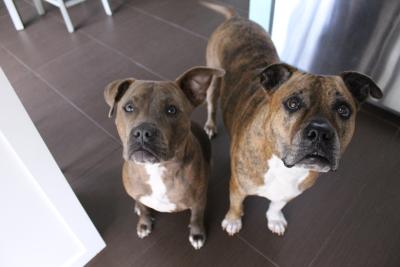
Lingering breed ban effects
Although it is now perfectly legal for pit bull terriers to live in Miami-Dade County, the negative effects of a quarter-century ban are still visible, says Monica. “It seems the first question I get about the dogs is: ‘Are they friendly?’ That’s something that doesn’t come up if someone walks by with a golden retriever.
“There definitely is some negativity still out there. While my neighbors adore my dogs, I can walk a few streets down and people will say not-so-nice things to me. I remember back when I was first fostering Logan, we were walking down a street, and a man began yelling at me from hundreds of feet away.”
Like most new things, including the lifting of the ban, Monica says it’s a matter of time and sharing information. “I feel like it’s my job to show people how wonderful my two dogs are,” she says. “And I try to do that every day.”
[Fall in love with these dogs during Pit Bull Awareness Month]
Meanwhile, Logan and Doug’s lives together keep getting better. Doug, who weighs 20 pounds more than Logan, is clearly the big brother, but their regular wrestling competitions are evenly matched. “They’ll chase each other around, but after a while they will just let you know that it’s time to lie down, relax, and be couch potatoes,” Monica says.
Since Doug’s been with Monica longer, he’s had more time in the neighborhood to make friends, influence people, and develop a constituency. “It’s taken a while to get there, but everyone knows him and loves him now,” says Monica. “In fact, they call him the mayor.”
And Logan, well, he’s completely healthy — not even a limp to remind anyone about his previous medical challenges. Six months into his new home, folks around the neighborhood are getting to know him, too.
No word yet, though, on whether the neighborhood needs a deputy mayor.
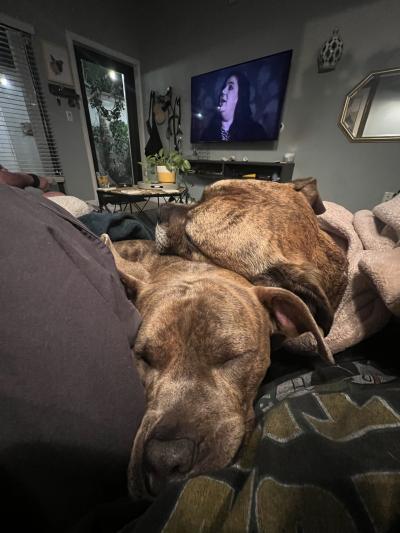
Let's make every shelter and every community no-kill in 2025
Our goal at Best Friends is to support all animal shelters in the U.S. in reaching no-kill in 2025. No-kill means saving every dog and cat in a shelter who can be saved, accounting for community safety and good quality of life for pets.
Shelter staff can’t do it alone. Saving animals in shelters is everyone’s responsibility, and it takes support and participation from the community. No-kill is possible when we work together thoughtfully, honestly, and collaboratively.
